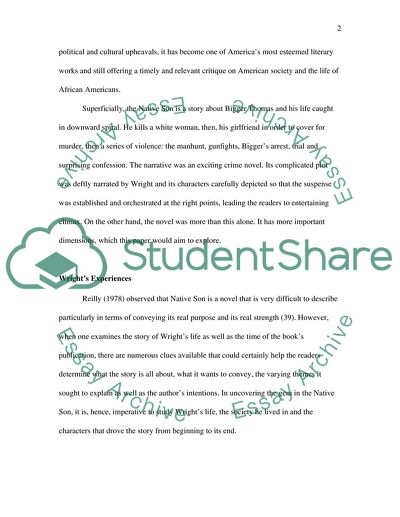Cite this document
(The Native Son - a Richard Wright's Novel Research Paper, n.d.)
The Native Son - a Richard Wright's Novel Research Paper. Retrieved from https://studentshare.org/literature/1737635-richard-wrights-native-son
The Native Son - a Richard Wright's Novel Research Paper. Retrieved from https://studentshare.org/literature/1737635-richard-wrights-native-son
(The Native Son - a Richard Wright'S Novel Research Paper)
The Native Son - a Richard Wright'S Novel Research Paper. https://studentshare.org/literature/1737635-richard-wrights-native-son.
The Native Son - a Richard Wright'S Novel Research Paper. https://studentshare.org/literature/1737635-richard-wrights-native-son.
“The Native Son - a Richard Wright'S Novel Research Paper”, n.d. https://studentshare.org/literature/1737635-richard-wrights-native-son.


